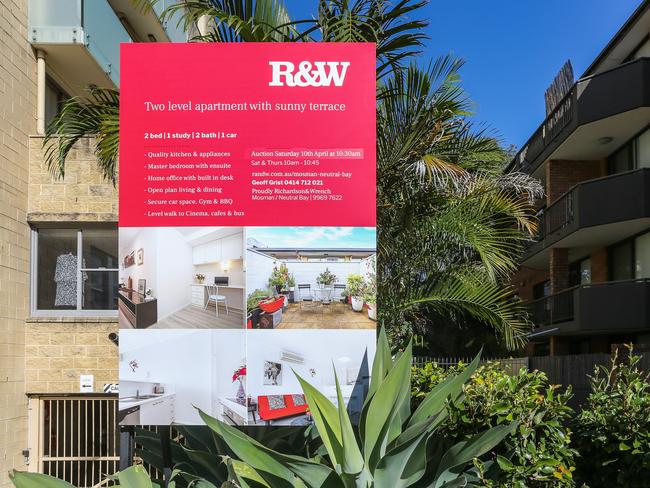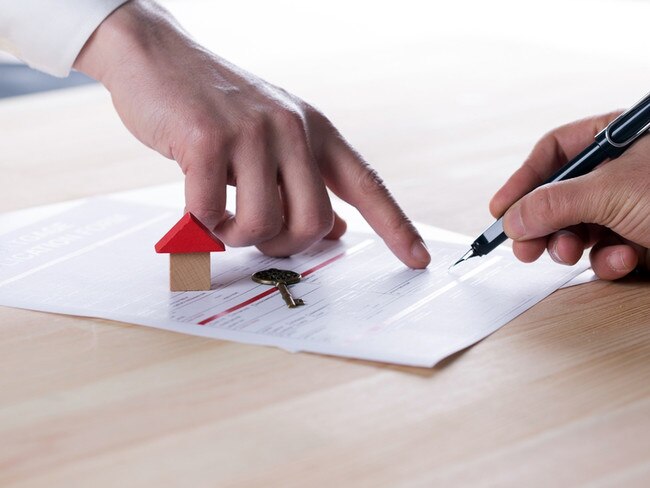When to refinance your home, according to an expert
Many Australians are paying too much over a range of loans, and there’s one thing they can do to free up hundreds every month.

Interest Rates
Don't miss out on the headlines from Interest Rates. Followed categories will be added to My News.
Refinancing your mortgage might not be “sexy”, says David Thurmond, owner of Mortgage Choice in Berwick, Victoria, but it is on the rise – and, according to him, the single biggest impact you can have on your monthly household expenditure.
“With the cost of living biting harder than ever, people have shifting financial priorities and refinancing is one of the ways we can help people ease a little bit of the pressure they’re under,” he says.
Over the past three years Australia seen the largest recorded increase in mortgage refinances on record. Monthly mortgage refinances sat at about $10 billion in mid-2020, growing to a peak of $21 billion in mid-2023, according to the Australian Bureau of Statistics (ABS).
When Mr Thurmond first started in the industry in 2007, he said the average home loan client would stay in their mortgage for about five years.
“That’s come down to about two or three years (these days) because there’s so much interest and awareness of interest rates now,” he says.
“Interest rates have obviously been a hot topic for the last two years. Everyone is super aware and more keen to refinance on a regular basis.”

When to refinance?
Mr Thurmond believes that rather than an arbitrary number of years, a more useful tool to determine whether or not you need to consider refinancing is what your current financial needs are, and whether they could be better met with a different mortgage.
“What I talk a lot to clients about is what life stage they’re in,” he says.
“Unsurprisingly, this is the most expensive life stage you can be in. You’ve got childcare expenses, or perhaps you’re cutting back on work because you’ve still got little ones at home, or maybe you’re trying to pay for private schooling. All of those expenses make servicing your mortgage even more challenging, so that’s when we can look at shifting things around.”
More than finding lower interest rates
“People often make the mistake of assuming refinancing their mortgage is solely to try and get a lower interest rate on their home loan,” Mr Thurmond says. “Which couldn’t be further from the truth. A good broker will sit down, look at all your expenses and liabilities, and figure out the right way forward.”

One way in which people can do this, he says, is through debt consolidation – with the potential to make huge savings, particularly in regards to cash flow – something a lot of Australians are struggling with at the moment.
“It’s important to look at all your expenses, then we can talk about whether or not consolidating through your home loan could be a good option,” Mr Thurmond says.
“One area we can help is consolidating HECS – because the ATO is increasing the repayment thresholds each year. We look at consolidating credit cards, personal loans, car loans – all of those things that impact cash flow.”
One example Mr Thurmond uses could even save homeowners up to $900 a month in certain circumstances.
“A lot of us have certain debts, and most of them are things that we took on back when interest rates were at two per cent,” he explains. “Now that they’re at six per cent, everything has become a lot more difficult. For example, consider a $30,000 car loan – it’s probably costing you $1200 a month. If you consolidated that loan onto your home loan, it might add an extra $300 a month on your mortgage repayments, but you’ve just freed up $900 per month of cash flow.”

Mortgage suggestion that ‘shocks’ people
A lesser-known way refinancing can help people needing to free up cash flow is through extending the term of a home loan.
“One thing I like to talk to clients about is flexibility,” Mr Thurmond says. “It shocks people when you say, ‘oh, let’s take your 21-year term and spread it back out to 30 years’. But as a mortgage holder myself, I want flexibility. So I would much rather have a longer loan term with the ability to pay extra if I want to, and still pay it off in 21 years just by making extra repayments when it’s convenient, while giving myself the flexibility of a smaller required repayment.”
Ultimately, says Mr Thurmond, it’s about refinancing to suit your individual goals, which are not only unique to you, but also to the season of life you find yourself in.
“If a client’s goal is to pay the loan off in 20 years and they want to be aggressive with it, well then maybe we stick to that same loan term,” he says. “But for most clients in most situations, the cash flow and flexibility of extending the term can be beneficial.”
Originally published as When to refinance your home, according to an expert


